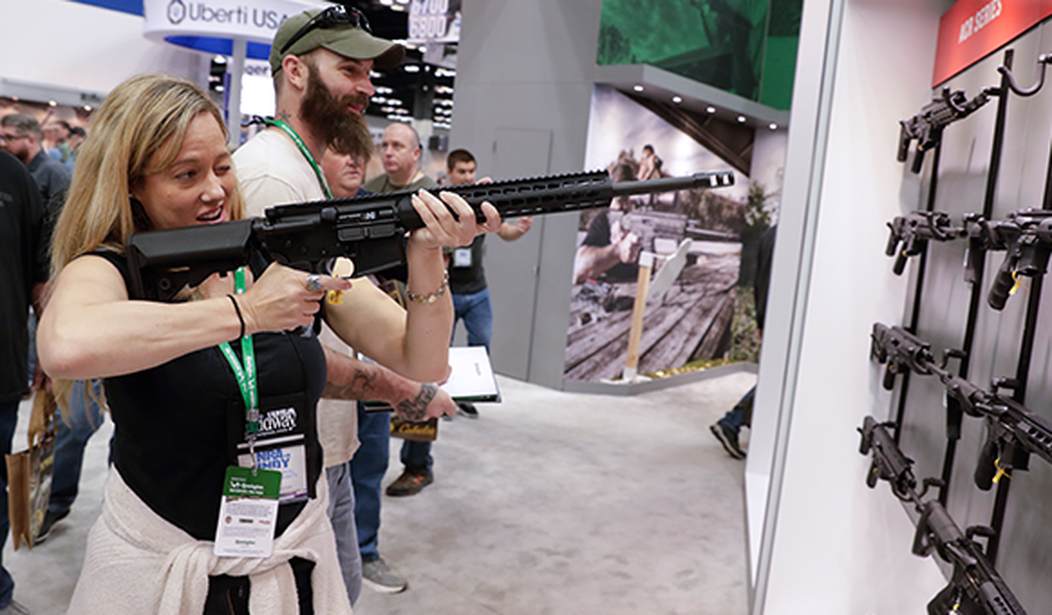Second Amendment advocates in Illinois are warning that a provision of the state’s recently-enacted ban on “assault weapons” and “large capacity” magazines set to take effect in January is going to be impossible for gun owners to comply with, setting up the possibility of new litigation and concerns about how the Illinois State Police and other law enforcement agencies will be enforcing the unworkable portion of the law.
Under the gun and magazine ban, all current owners of “assault weapons” are required to register them with the state no later than January 1, 2024. But in addition to requiring registration of the guns themselves, the law also mandates that “attachments” to the firearms must also be registered with the state police.
Gun rights advocate Todd Vandermyde said registering parts is unworkable.
“For certain people, it’s going to be impossible to comply,” Vandermyde told WMAY. “I was cleaning off a table the other day and I started finding all kinds of parts that I forgot I had; hammers, triggers, springs.”
The other issue is about what he called “common parts.”
“This part will work on a shotgun that’s legal. It will work on an AR over here that’s illegal,” Vandermyde said. “How do you delineate that?”
Vandermyde expects more legal challenges to try and block the registry.
“There are groups that are having conversations about how to tackle the registration issue as it gets closer to an implementation date, depending on what the court of appeals does,” he said.
As our friends at Mom-at-Arms recently reported, the state’s definition of an “attachment” is so broad that it can include anything from dust covers to springs, all of which must be itemized and submitted to the State Police for registration in order to comply with the law. This could end up ensnaring countless lawful gun owners in a web of criminality through no fault of their own and lead to fines or even jail time for those prosecuted by zealous anti-gun prosecutors in places like Cook County.
The half-dozen lawsuits filed in federal court over the gun and magazine ban are still awaiting a decision by a three-judge panel of the Seventh Circuit, and the Illinois Supreme Court is also weighing a decision by a Macon County judge who ruled that the law violates the equal protection rights of residents. Even if the Seventh Circuit or the state Supreme Court rules in favor of the plaintiffs (which appears unlikely given the makeup of the Seventh Circuit panel and the ISC), Attorney General Kwame Raoul could appeal to the U.S. Supreme Court, so the odds of the law being completely undone by the time the implementation date rolls around are pretty low.
State police are set to open the portal for registration beginning Oct. 1, with a Jan. 1 deadline to file an affidavit. Vandermyde questioned the ability for ISP to manage such a system.
“We know how good they are at websites. Just look at the disaster that is the [Federal Firearms Licensees] website,” he said.
Adding to the concern could be that in August 2021, hackers attempted to breach the ISP Firearm Owners ID database, possibly exposing more than 2,000 individuals’ private information.
Which is yet another cause for concern for gun owners. The state of Illinois is maintaining a shopping list for criminals looking to steal firearms from lawful gun owners, and as we’ve seen in California it doesn’t take hackers to reveal the private details of gun owners, just incompetent or malicious government officials who don’t mind exposing the personal data of gun owners to anyone who cares to look.
The rollout of Illinois’ gun and magazine ban has already been a slow-motion trainwreck, and more damage is looming ahead for the state’s lawful gun owners. I wish I could say I was confident that relief is soon to come, but at this point it’s going to take the Supreme Court stepping in to set things right, and there’s no guarantee that will happen in time to save gun owners from yet another paperwork “crime” that could result in hard time or massive fines for non-compliance with an unworkable (and unconstitutional) state law.










